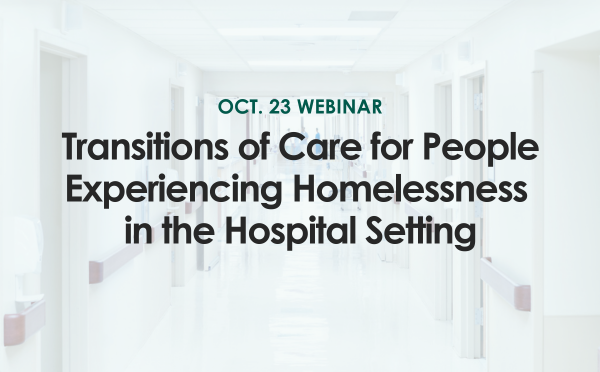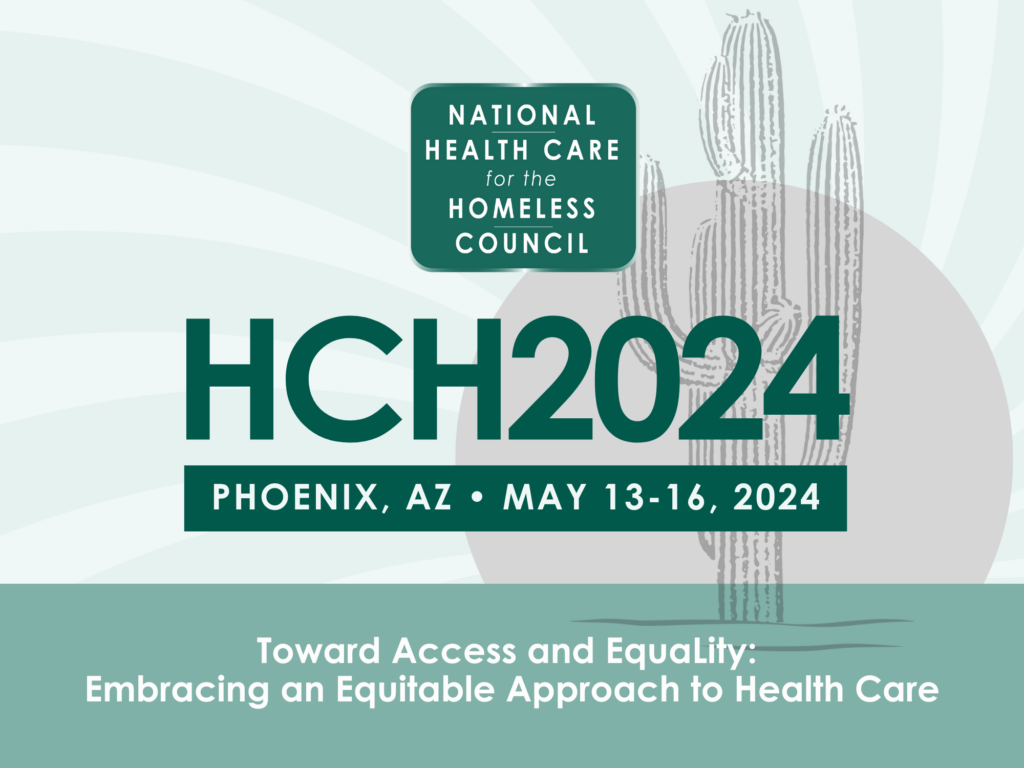Lessons Learned: Transitions of Care for People Experiencing Homelessness in the Hospital Setting
CommonSpirit Health, USC Street Medicine, and the National Health Care for the Homeless Council (NHCHC) hosted a 90-minute webinar discussing the unique and complex needs of individuals experiencing homelessness during and post hospitalization. This webinar provides concrete ways for hospital teams and community providers to support unhoused individuals during hospitalization. Participants also learn how to […]



